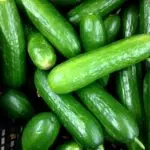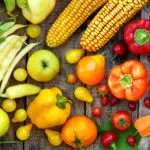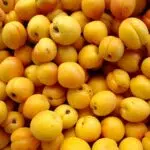From a cool glass of milk, hot butter being spread seamlessly across toast, or a heaping bowl of ice cream, World Milk Day on celebrates it all! The day was organized by the Food and Agriculture Organization of the United Nations to celebrate the dairy industry and recognize milk as a globally important food. World Milk Day seeks to start a conversation on how nutritious, affordable, and accessible milk is around the globe — not to mention delicious!
History of World Milk Day
Today, we attempt to answer the age-old question: what was the first guy to drink milk thinking? While his thoughts may be lost to the ether of time, we do have some knowledge about how milk came to be a popular and stable source of nutrition for early humans. Though humans began to drink milk when animals were domesticated in the Neolithic age around 9000–7000 B.C., lactose tolerance was lost in adults for all of humanity’s history before this age. Until a later genetic mutation allowed us to drink milk, early humans mostly ate fermented dairy products, which were more easily digestible.
Milk became important in many cultures, both for spiritual and logical reasons. For example, for ancient Egyptians, Greeks, and Sumerians, milk was a key element in mythology. Some people in Western Africa believed the universe started with a single drop of milk. Mongolians traveled with dried horse milk that would be reconstituted and provide nourishment on long journeys.
As much as milk was worshipped, it was also ridiculed. While early Japanese Buddhists mocked those who consumed butter, Northern Europeans were thought disgusting for consuming reindeer milk. In Rome, milk was thought to be a low-class beverage, only to be consumed by farmers who had no other choice.
The next chapter in the history of milk comes with industrialization. While most countries and cultures had adopted milk, many places just weren’t close enough to farms with milk to enjoy it. Enter railways. Suddenly, urban demand for milk in places like London and Paris skyrocketed. Rural imports transformed milk into a big-time market. Throughout the 1800s, there was much innovation around milk, from breweries opening dairies to feed their spent grains to cows, to vaccines being invented by watching how milkmaids avoided smallpox.
Milk has clearly had a huge impact on our society, but the demand and production of it have shifted dramatically in recent years. In 2016, milk was overproduced in several countries and many, including China, put a stop to any milk imports. In recent years, many dairies have filed for bankruptcy, as trends are shifting towards alternative, non-dairy milk. Due to COVID-19, dairy farmers have been dumping millions of gallons of milk per day. Who knows what will happen to dairy next!
World Milk Day timeline
After mammals are domesticated in Neolithic times, humans begin to drink milk for sustenance.
Mongolians pack dried horse milk into a paste that can be reconstituted with water for long journeys.
Humanity finds a way to improve on a nice cool glass of milk in the 1600s with the invention of ice cream.
Railways allow the transportation of milk from rural farming areas to cities in England.
Russia, China, Canada, the EU, and more become self-sufficient with milk production and stop importing milk.
World Milk Day FAQs
Where is World Milk Day celebrated?
Globally! Around 80 countries celebrated the holiday in 2018.
What is the theme of World Milk Day 2019 in India?
The theme for World Milk Day in India in 2019 was ‘Drink Milk: Today & Every Day.’
When was World Milk Day initiated?
World Milk Day was initiated in 2001 by the UN Food and Agriculture Organization (FAO).
How to Observe World Milk Day
Make homemade ice cream
What better way to celebrate milk products than making one of the best dairy products by hand! Homemade ice cream doesn’t require too many materials or tools, and can be fun to whip up, especially with friends and family!
Enjoy a glass of milk
Ah, the most simple, classic, and refreshing way to participate in World Milk Day. Since we’re appreciating the food anyway, let’s get back to basics. Pour out a creamy glass of milk and enjoy the day.
Use #WorldMilkDay or #EnjoyDairy
The official hashtags for World Milk Day are great methods to join the conversation on dairy over social media. Check out the website for World Milk Day to see all the social media campaigns you can join in on!
5 Fun Facts About Milk
Daily, a cow will produce over six gallons of milk
Holy cow! Every day, a cow can produce around 6.3 gallons of milk — this adds up to 350,000 glasses of milk in a lifetime.
Americans consume a lot of milk
In a typical year, the average American will drink 25 gallons of milk per year.
Salt it up!
To keep milk fresh for just a little longer, a great trick is to add a little salt — the right ratio is one pinch of salt per quart of milk.
No shortage of dairy
Yearly, around 1,000 new dairy products are added to the market!
The milkman first came around in 1942
As part of a milk conservation measure during World War 2, home delivery of milk began in 1942.
Why World Milk Day is Important
Milk nourishes people globally
While not every country and culture drinks milk, the vast majority enjoy dairy and many have made it a key element of their cuisine. Some of the countries where milk is most popular include Finland, the Netherlands, and Sweden, while milk is not a widespread beverage in North Korea or Liberia.
It’s delicious!
Who doesn’t love the first sip of a chilly glass of milk, the first spoonful of ice cream, or the warm embrace of a cup of hot cocoa? Milk has been transformed into a plethora of our most well-loved foods for a good reason — dairy is delicious.
Milk is very nutritious
Milk that’s 2% or less is chock-full of nutrients! We know your mom has always said milk helps your bones grow, but milk actually carries many more benefits than that. It’s packed with calcium, vitamin D, and potassium, which are routinely under-consumed nutrients.
World Milk Day dates
| Year | Date | Day |
|---|---|---|
| 2026 | June 1 | Monday |
| 2027 | June 1 | Tuesday |
| 2028 | June 1 | Thursday |
| 2029 | June 1 | Friday |
| 2030 | June 1 | Saturday |


















































































































